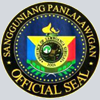About Sangguniang Panlalawigan
Sangguniang Panlalawigan commonly known as the Provincial Board, are the legislatures in Philippine provinces. They are the legislative branch of the province and their powers and responsibilities are defined by the Local Government Code of 1991. Along with the provincial governor, the executive branch of the province, they form the province's government. Members are either called as "board members" (BM) or as "Sangguniang Panlalawigan members" (SPM).
During the early period of Spanish colonization, newly conquered areas were designated as encomiendas which were headed by an encomendero chosen by the Spanish from among the ranks of the powerful local nobles. Encomiendas were organized only for the purposes of collecting tribute that went in part to the Roman Catholic Church, the Spanish army, and to the Royal Treasury. Later on areas which were organized and given the designation of "province" (provincia) were led by an appointed alcalde who performed judicial, fiscal and executive functions. This system of government lasted for almost three hundred years until 1886 when a governor (gobernador) was first appointed in each of the eighteen existing provinces, relegating the alcalde to carry out only judicial functions.
Key Aspects of Sangguniang Panlalawigan Legislation:
Composition: The SP is composed of the Governor (as presiding officer), the Vice-Governor (presiding officer pro tempore), elected members representing legislative districts, and sectoral representatives.
- Leadership Orientation and Commitment
- Development of Strategy and Vision
- Opportunity to work with dedication
- Public Service



